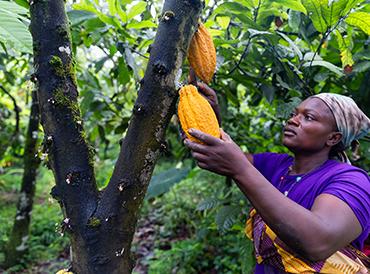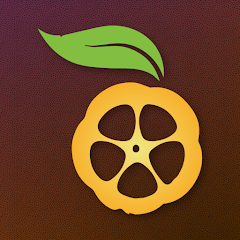
Cocoa production is vital to West African economies. In Ghana, the world’s second largest producer of cocoa (after the neighbouring West African country of Côte d'Ivoire), smallholder-produced cocoa employs 800,000 farmers and accounts for more than 90% of production.
However, the majority of agroforestry cocoa smallholders lack access to critical resources and management options needed for improving yields.
Evidence shows that some ecological approaches are promising for increasing productivity and there are observable yield benefits when there is a diverse mix of tree and forest cover at the landscape-scale. This is particularly relevant as the regional climate is changing, including more intense dry seasons - Ghana’s cocoa-producing regions are among the driest currently producing the crop. There is concern that projected temperature changes and the continuation of a decades-long drying trend in the region will endanger future cocoa productivity, risking incomes and livelihoods.
Adaptation is required to ensure continued productivity and long-term resilience of the sector. The government of Ghana recognises the importance of these challenges and has committed to supporting farmers to implement principles of “Climate Smart Cocoa”; however, knowledge gaps remain over the best management recommendations under different landscape and shade regimes and how to protect existing forest cover for climate regulation and ecosystem service provision.

Empowering farmers to track farm information over time and share knowledge and experience with community members through landscape governance structures grows the evidence base for decision-making.
The Co-Pod project developed a novel mobile application platform, co-produced in Ghana with farming communities (Kakum, Central Region, Ghana) and the Nature Conservation Research Centre (NCRC), University of Dundee and Flumens Ltd, to facilitate information capture, dissemination and decision-making and promote resilience under climate change adaptation.
The tool enables farmers to gain knowledge through more systematic on-farm observations and catalyse locally-generated adaptive management. Over time, it will improve understanding around the risk and reward of certain interventions and promote resilience. The ultimate goal is therefore to co-develop sustainable agroforestry practices which deliver secured income and poverty alleviation.

